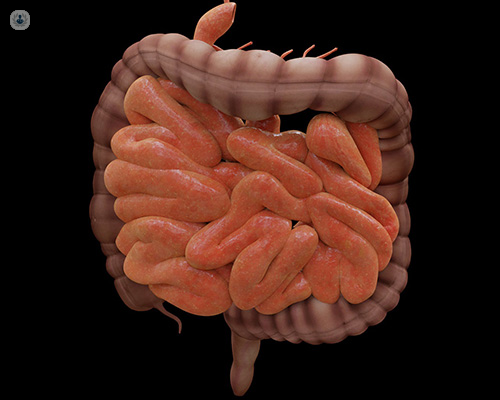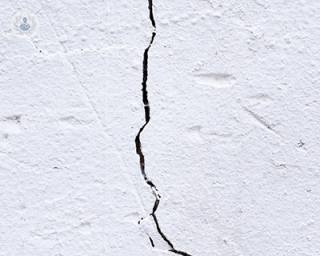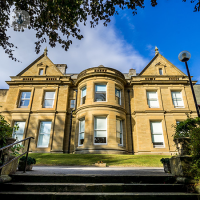Rectal surgery
Mr Paul Skinner - Colorectal surgery
Created on: 11-13-2012
Updated on: 09-12-2023
Edited by: Conor Lynch
What is rectal surgery?
Rectal surgery covers a large number of procedures used to treat conditions that affect the rectal area and colon. The disorders that rectal surgery addresses include:
- Haemorrhoids
- Anal fissures
- Fistulas
- Rectal prolapse
- Colorectal cancer
- Types of Inflammatory Bowel Disease (IBD) such as Crohn’s disease and ulcerative colitis
Procedures that are a type of rectal surgery include:
- Colectomy
- Colostomy
- Endoscopy
- Colonoscopy
- Haemorrhoidectomy
- IBD surgery
- Resection
- Internal sphincterotomy
- Rectopexy

Why would you need rectal surgery?
Surgery might be recommended for any of the above conditions if other means of treatment have failed, or if the condition is severe enough to require surgical intervention.
What do these various rectal surgery procedures involve?
Colectomy:
- The removal of some or all of the colon.
- Segmental colectomy – the diseased section of the colon is removed, and the ends of the bowel are then joined together.
- Polypectomy – cancerous polyps are removed using a colonscope which is inserted into the rectum, and a loop is passed through the colonscope to remove the polyp.
- Total colectomy – the whole colon is removed and a new pouch is formed and joined to the anus.
Colostomy:
- Also known as a stoma, a colostomy is an opening connecting the colon to the surface of the abdomen where a stoma is attached to allow the removal of waste from the body.
- These can either be temporary or permanent.
Endoscopy:
- A tube with a camera at the end is inserted through a small incision in the abdomen, allowing the surgeon access to the abdomen and to perform certain procedures.
- Often an endoscopy is carried out to remove tumours or to make a diagnosis.
Colonoscopy:
- A tube with a camera at the end is inserted through the rectum, and allows the surgeon to see a camera image of the colon.
- This procedure is usually carried out for diagnostic purposes.
Haemorrhoidectomy:
- Initial treatments for haemorrhoids are usually non-surgical, however, if these do not provide sufficient relief, then surgery will be recommended.
- Local anaesthesia is given, and incisions are made around the anus to remove the haemorrhoids.
IBD surgery:
- If the IBD has caused extreme intestinal pain that has resulted in hospitalisation, then surgery may be recommended.
- Surgery to remove the colon (colectomy) can cure ulcerative colitis, and can provide relief for those suffering from Crohn’s disease.
Resection:
- Broadly, a resection is a procedure that removes diseased sections of tissue or organ.
- Different resections can treat colorectal cancer and various intestinal issues.
Internal sphincterotomy:
- Used to treat anal fissures, local anaesthetic is applied to the area and where small incisions are made to the sphincter to relieve pressure caused by the anal fissure.
- Sometimes general anaesthetic is required.
- This procedure does not cure anal fissures, but allows the muscles to relax, aiding the healing of the anal fissure.
Rectopexy:
- Used to treat rectal prolapse, the procedure repositions the internal structures of the rectum.
How should I prepare for rectal surgery?
Depending on which type of procedure and disorder you have, preparation for surgery will differ. For more intensive surgery, health will need to be monitored and improved before surgery, and often a period of fasting the day before surgery will be required.
What is recovery from rectal surgery like?
Recovery from rectal surgery differs depending on the type. Those carried out laparoscopically (keyhole surgery) will often allow same or next day discharge from hospital. Other, more intense surgeries may require a stay in hospital for up to two weeks.
















